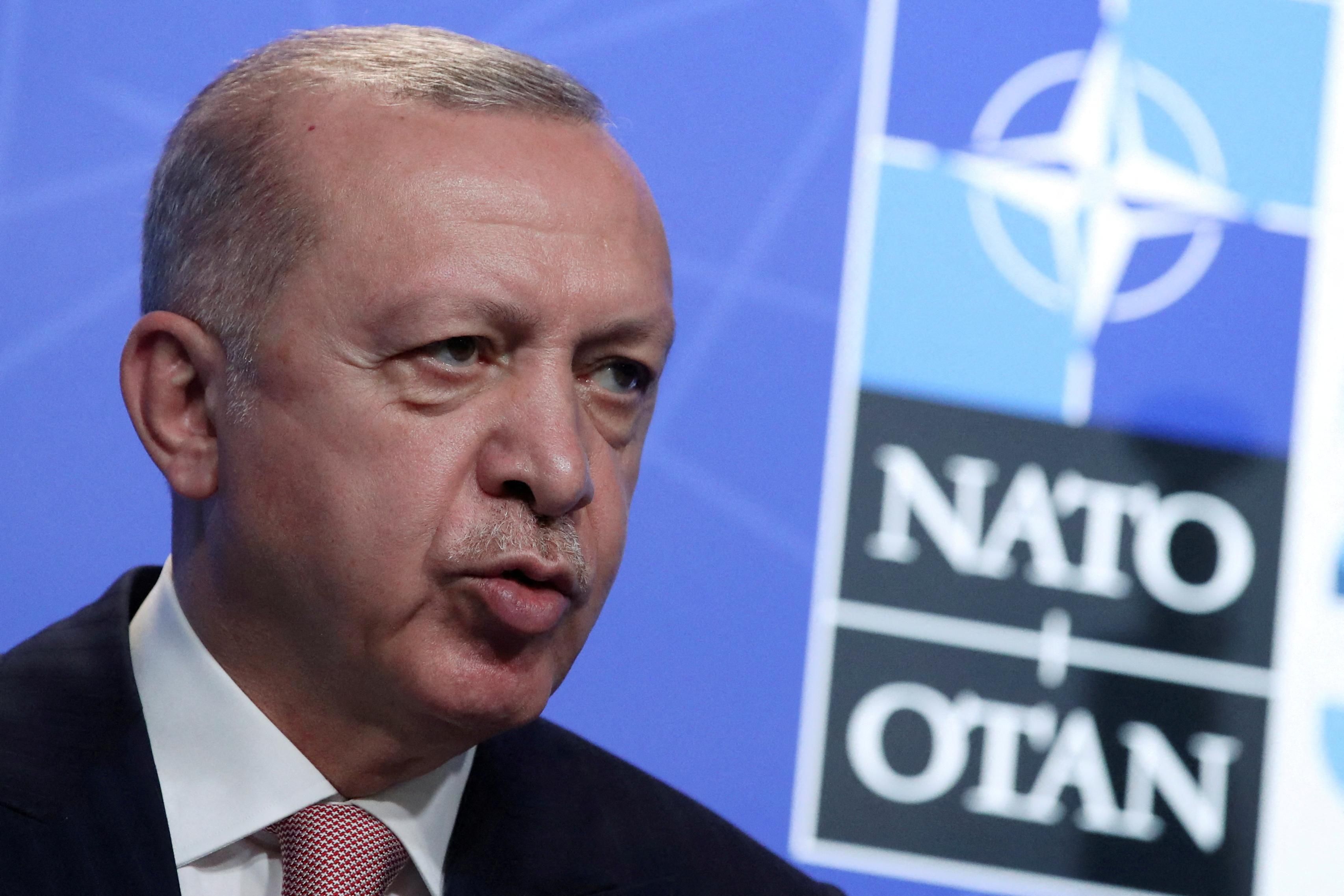Turkey has thrown an eleventh-hour spanner into historic bids by Finland and Sweden to join NATO over supposed terrorist presence in the Nordic countries linked to the Kurdistan Workers’ Party, a militant group Ankara regards as a terrorist organization. On Monday, President Recep Tayyip Erdoğan threatened to block the applications. (NATO accession requires approval from all current members of the alliance.)
Erdoğan's tirade aside, NATO's longtime bad boy is expected to ultimately back off without too big a fuss. The Turks will try to get some concessions, and bringing up the Kurds always plays well domestically, but Turkey previously told the Finns and Swedes that it wouldn’t close the door to their NATO membership.
What a turnaround from late 2020, when the notoriously pugnacious Erdoğan was antagonizing several countries at once: the EU by drilling for oil in the eastern Mediterranean; French President Emmanuel Macron over his views on radical Islam; the US and NATO by buying Russian missiles; Russia in Syria; and Saudi Arabia over the Jamal Kashoggi murder, all without breaking a sweat.
So what’s up with the bombastic statements on the one hand, but softer back-channel reassurances on the other? Erdoğan now has a much bigger problem at home: an economy teetering on the brink of collapse.
Turkey simply can't afford to pick fights with anyone. The country’s inflation rate recently hit a whopping 70%, largely driven by the depreciation of the local currency, which lost 44% of its value against the US dollar in 2021.
Yet, Erdoğan continues to defy economic wisdom by keeping interest rates low, which makes the problem worse.
To be fair, the Turkish economy was already in dire straits when the president was in a more confrontational mood almost two years ago. Back then, though, Erdoğan was able to score political points at home by looking tough when he lashed out abroad.
Now, however, he needs (financial) help from foreign friends in order to get Turkey out of its economic mess. The situation has deteriorated so much that a majority of Turks have lost faith in Erdoğan’s ability to fix the economy.
Many of those friends are in Turkey’s neighborhood. That explains recent moves by Erdoğan to patch things up with Egypt, Israel, Saudi Arabia, and the UAE — all of which Ankara is relying on for investment to revitalize the Turkish economy. (Earlier this year, the Emiratis gave Ankara a much-needed assist in the form of a $5 billion currency swap to prop up the lira.)
But Turkey’s needs cannot be met by Gulf cash alone, so the Turks are also walking a tightrope between their Western allies and Russia over the war in Ukraine.
Since Russia invaded Ukraine, Turkey has stepped up as mediator-in-chief, including as a two-time host of Russia-Ukraine peace talks. Ankara is one of a handful of countries that enjoy warm ties with both Russia and Ukraine. Energy-poor Turkey buys 45% of its natural gas imports from Russia but also sells weapons to the Ukrainians — including high-precision drones that are making a difference on the battlefield.
Similarly, although Turkey refused to join Western sanctions against Russia, it agreed to Ukraine’s request to not allow Russian warships to sail through Turkish waters linking the Mediterranean and Black Seas.
But NATO membership has made Turkey’s balancing act harder. Some members of the alliance resent Erdoğan for becoming too cozy with Vladimir Putin since Russia agreed to sell Turkey S-400 missiles — which the Turks won’t give to Ukraine, despite Washington’s request — suspect Turkey will help Russia skirt sanctions, and see Putin’s hand in Erdoğan’s threats to Finland and Sweden.
Still, there are stronger odds that Turkey will ultimately lean West because it is desperate for American and European investment — even more so if the war in Ukraine escalates and Russian sanctions get tougher.
More For You
In this episode of Tools and Weapons, Microsoft Vice Chair and President Brad Smith sits down with Ed Policy, President and CEO of the Green Bay Packers, to discuss how purpose-driven leadership and innovation are shaping the future of one of the world’s most iconic sports franchises. Ed shares how technology and community-focused initiatives, from Titletown Tech to health and safety innovations on the field, are transforming not just the game of football, but the economy and culture of Green Bay itself. He explains how combining strategic vision with investment in local startups is keeping talent in the Midwest and creating opportunities that extend far beyond Lambeau Field.
Subscribe and find new episodes monthly, wherever you listen to podcasts.
Most Popular
Egyptians are voting this month in parliamentary elections that aren’t expected to change who’s in charge, but could allow President Abdel Fattah el-Sisi to rule beyond 2030.
Thailand and Cambodia’s ceasefire is on the verge of collapse. Strikes were launched across their disputed border today, following clashes over the weekend that resulted in the death of a Thai soldier.
